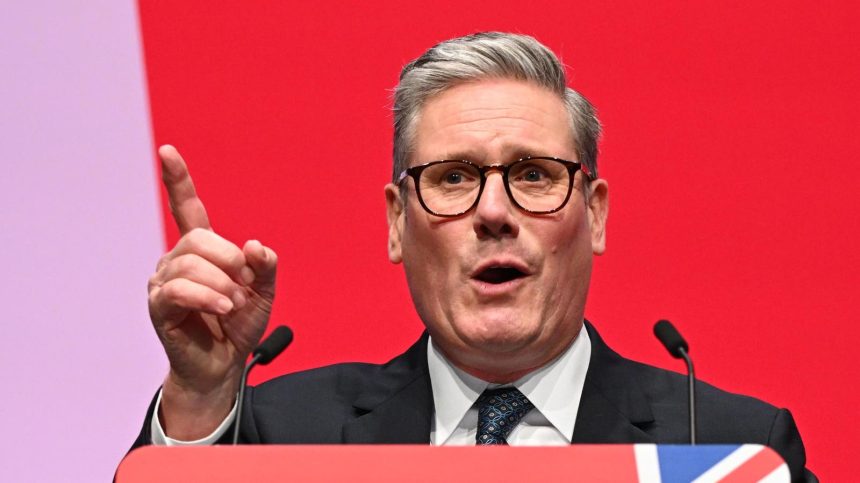The debate surrounding immigration policy in the United Kingdom continues to be a focal point of political discourse, with a recent report from the influential think tank, Labour Together, adding a new dimension to the conversation. The report advocates for a significant shift in approach, proposing the adoption of long-term targets for immigration, a move designed to curb overall numbers while simultaneously addressing the needs of the British economy. This recommendation comes despite Prime Minister Keir Starmer’s prior dismissal of the idea of implementing a cap on immigration, setting the stage for potential tension within the Labour party.
Labour Together argues for the establishment of an Australian-style national migration plan, which would entail setting “credible, long-term targets” aimed at reducing immigration levels. Crucially, this approach would not be a blanket restriction, but rather a managed system designed to ensure that the UK attracts the skills and expertise required to support its economy. The report emphasizes that businesses with genuine needs for skilled workers and professionals not readily available in the current British labor market would still have access to international talent. However, the report stresses that this access should not equate to an “open door” policy, recognizing the potential downsides of an unregulated labor market. The underlying principle is to strike a balance between controlling immigration and meeting the demands of a dynamic economy.
The context for this proposal is a backdrop of record-high net migration figures. Official data reveals that net migration reached an unprecedented 906,000 in the year to June 2023, prompting renewed calls for stricter controls. While subsequent figures indicate a decline to 728,000 in the year to June 2024, attributed to policy changes restricting family members accompanying international students and healthcare workers, the overall numbers remain historically high. Labour Together, however, rejects the calls for a rigid migration cap or the pursuit of net-zero migration, arguing that these represent simplistic, politically motivated solutions rather than effective policy. The think tank contends that focusing solely on net migration figures is misguided, as governments can control who enters the country but have limited influence over emigration patterns.
Instead, Labour Together proposes a more nuanced approach. The think tank recommends establishing clear targets for inward migration based on a comprehensive analysis of the UK’s economic needs and labor supply. This approach prioritizes economic migration with a demonstrable positive fiscal contribution in the long term. Further bolstering this framework, the report suggests incorporating an “emergency break” mechanism, empowering Parliament to intervene and adjust visa routes if migration figures are projected to exceed the established targets. This measure would provide a degree of flexibility and responsiveness to unforeseen circumstances while maintaining overall control over immigration levels.
The report’s recommendations enter a political landscape marked by fluctuating immigration policies and unmet targets. The previous Conservative government, under David Cameron, set a target of keeping net migration below 100,000, a goal that ultimately proved elusive. More recently, Conservative leader Kemi Badenoch has advocated for a “strict numerical cap” on visas, prioritizing individuals who can demonstrate a substantial contribution to the UK. Badenoch also promises greater transparency in immigration data, enabling public scrutiny of the costs and benefits associated with different migration categories. Meanwhile, Prime Minister Starmer, despite expressing commitment to reducing net migration, has refrained from specifying numerical targets, emphasizing the need for a “serious plan” to manage borders rather than focusing on arbitrary caps.
The connection between Labour Together and Prime Minister Starmer’s office adds another layer of intrigue to the debate. Starmer’s chief of staff, Morgan McSweeney, previously served as the director of Labour Together and is widely credited with orchestrating Labour’s successful general election campaign. Furthermore, the current leader of the think tank, Jonathan Ashworth, is a former parliamentarian and a key figure in the same election campaign, having also held prominent positions in Starmer’s shadow cabinet. These close ties suggest that the report’s recommendations, while not official party policy, might carry significant weight within the Labour government, potentially influencing future immigration policy decisions. This also sets the stage for a potential clash of opinions within the party, given Starmer’s previous reservations about setting specific immigration targets.



